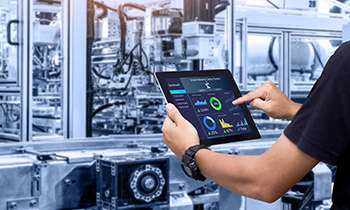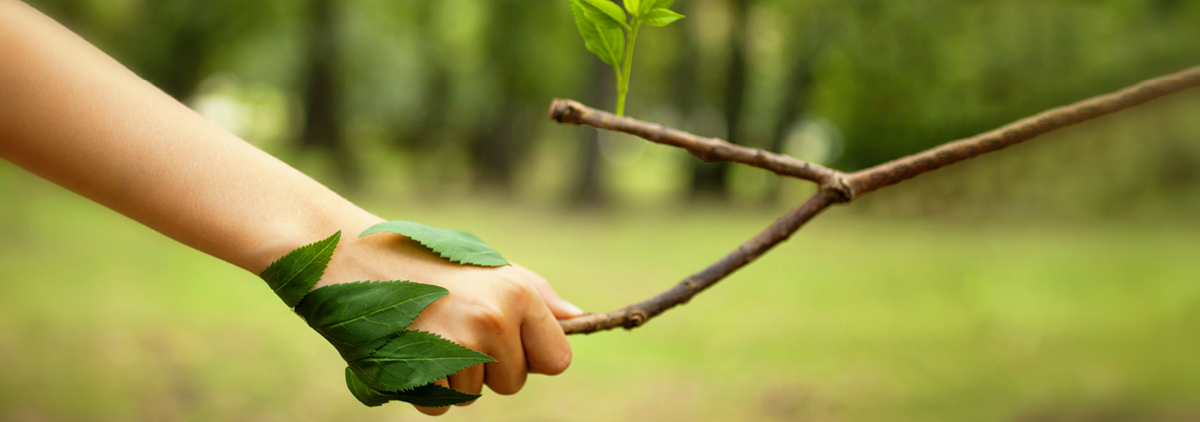How could sustainability shape Packaging in the Disposable Hygiene industry?
1. Continuous innovation
2. GDM packaging solutions - Materials
a. Recycled plastic and low-density polyethylene
b. Green polymers
c. Monomaterial
3. GDM Packaging solutions - Machines: The SB70 Red Series B10
Continuous innovation
Our approach to sustainable development is rooted in continuous innovation not only in Disposable Hygiene products manufacturing, but also in their packaging.
As in the converting technology, we are bringing sustainability into the packaging one, thanks to our capability to offer complete turnkey solutions. Over the years, we have introduced a wealth of green packaging alternatives, driving innovation in both materials and technology.
With the global industrial sector more and more oriented towards sustainability, the focus is on Polyethylene (PE) and Polyphenylene Ether (PPE) alternatives. In line with these expectations, our solutions are set-up to handle bags made of bio-based materials, minimizing carbon footprint and reducing therefore the impact on the environment.
We are indeed a one-step partner, capable of meeting the most varied customer needs, from converting to End of Line, always granting the best Total Cost of Ownership of the investment. All our designs are made in Italy and are therefore synonymous with quality all over the world.
GDM packaging solutions - Materials
Innovation in materials starts from bags, that’s why we are exploring alternative packaging solutions, that is: monomaterial, green polymers, as well as recycled plastic and low-density polyethylene
Recycled plastic and Low Density Polyethylene
We are exploring the use of Low Density Polyethylene (LDPE) and recycled plastic.
In the first case, we realize bags for disposable hygiene products with a lower thickness compared to the standard - 35 microns versus 50 microns.
This has powerful implications as far as saving is concerned:
- Reduction of virgin PE used: up to -30% grams per bag
- Reduction in the material cost: up to -25% [1]
Recycled plastic, on the other hand, goes in the direction of a low-carbon circular economy, where waste is eliminated through the continual reuse of resources. This option is very promising for its potential to turn the traditional linear economy of plastic into a zero-waste business model, all without impacting quality.
Green polymers
Plastic pollution is one of the greatest environmental concerns of our time. This is largely due to two primary factors: its manufacturing process, which involves burning fossil fuels, and its cheapness. It is estimated that 79% of all the plastic waste produced since the 1950s - approximately 6.3 billion tonnes - has neither been recycled nor incinerated[2].
To move away from plastic, we are testing new packaging options built on 100% non-oil-based green polymers, with only renewable resources deployed in its manufacturing phase. One example is starch, a polymeric carbohydrate consisting of numerous glucose units joined by glycosidic bonds.
Monomaterial
This solution consists of using only monomaterial structures instead of material mix, enabling an easier and more efficient recycling process, as there is no need to separate the materials from each other.
GDM is supported along the path to sustainability by considerable investments programmed by Coesia Group. In December 2018, it has been established the Centre of Expertise Sustainability, supporting “green strategy setting” and accelerating existing initiatives.
With the support of the Centre, we are strongly focusing on sustainable innovation, both considering converting and packaging technologies, to provide effective solutions relevant to the three Sustainable Development Goals we are pursuing.
GDM Packaging solutions - Machines: The SB70 Red Series B10
Our entire packaging technological platform has been designed in line with our strong focus on sustainability. In particular, our SB70 Red Series B10 is characterized by its distinctive high speed and by its making no tradeoffs on flexibility and custom solutions.
As far as market needs are concerned, it is an advancement in production capacity, also for its capability to manage different formats of bags. Speed-wise, the SB70 Red Series B10 can hit a maximum of 70 cycles with a power consumption of just 255 kW, or 100 cycles per minute in dual lane, with the inlet going up to 1000 ppm.
In terms of technology, SB70 Red Series B10 features a drive system powered by servomotors, with robotic transfer units, and a stacker with fixed chain.
Looking forward to discovering our sustainable packaging solutions? Get in touch with us!
[1] assuming a bag capacity of 10 Baby products and a production of 500,000 bags
[2] www.economist.com/international


